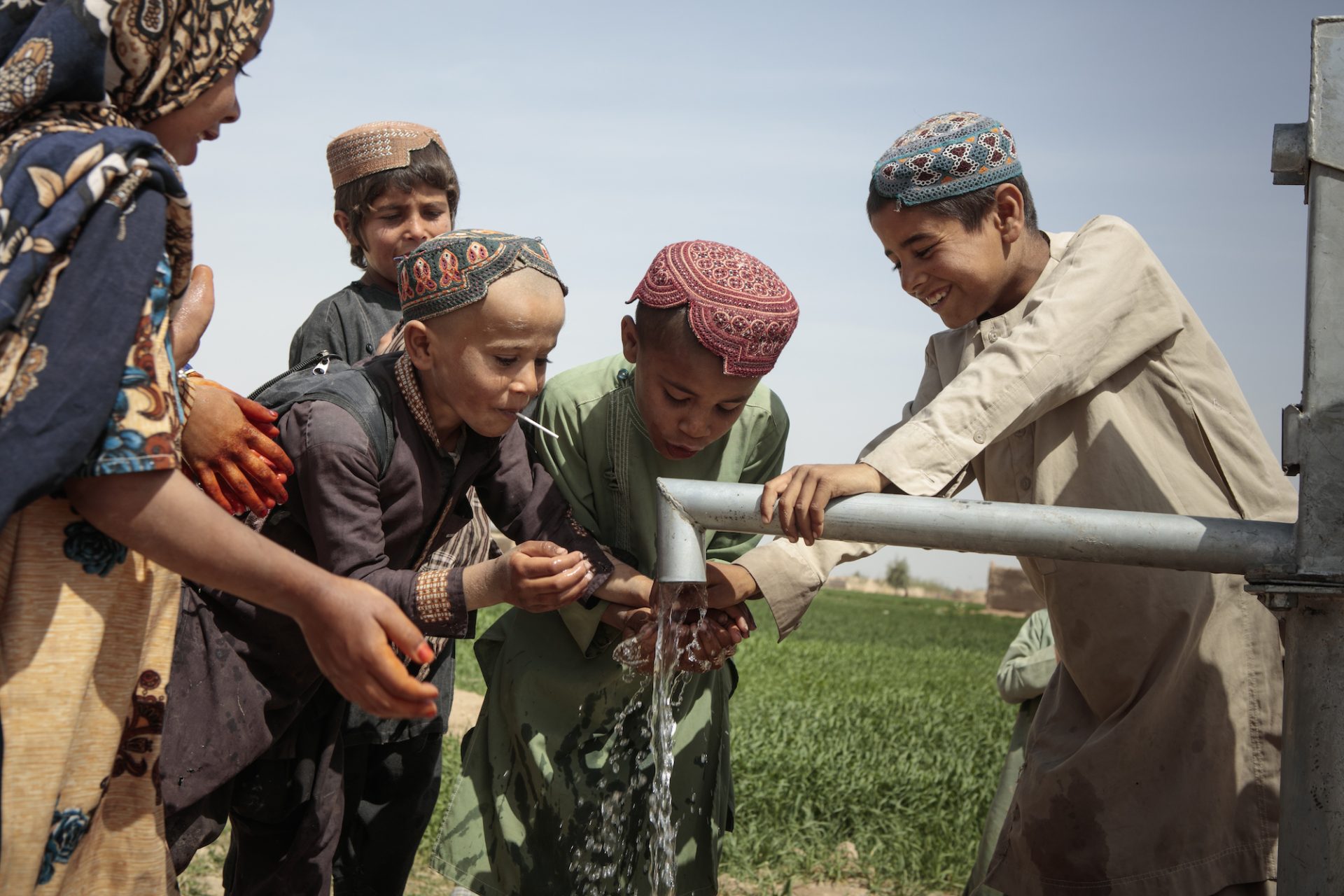According to a new report from Action Against Hunger, fewer than 30% of appeals for humanitarian support for water, sanitation, and hygiene (WASH) related programs were met in 2022, leaving an average funding gap of 70.3%. Released for World Water Day (March 22), the analysis looked at available data for 41 countries that used the UN humanitarian system to request humanitarian assistance for WASH programs in 2022, and highlights the connection between decreased water funding and growing hunger.
Funding the World’s Water Funding Crisis: How Donors Are Missing the Mark found that in 2022, no WASH appeals were fully funded for 13 countries experiencing “crisis” levels of hunger, even though dirty water contributes to more than 1.5 million deaths each year, many from malnutrition linked to water-borne disease. To fully fund WASH-related appeals through the UN humanitarian system, it would take an additional £2.1 billion.
“When people think about hunger, water is not always part of that conversation,” said Jean Lapegue, Senior WASH Advisor, Action Against Hunger. “But a lot of our work is focused on managing and improving access to clean water. Not only is it essential to grow and prepare food, but it also prevents the spread of disease. Twenty-seven percent of deaths of children younger than five are directly related to preventable water-borne diseases.”
“We know how to overcome the water challenges that we face every day, but we need adequate funding to do it,” said Bizuneh Assefa, Action Against Hunger’s WASH Specialist for the Horn and Eastern Africa . “I have seen firsthand the transformative impact that water, sanitation, and hygiene—or WASH—programs can have in the fight against hunger. By investing in WASH, we can reduce hunger, promote health and gender equity, and mitigate the impacts of climate change.”
When looking at funding for countries dealing with crisis levels of hunger (or worse), Action Against Hunger found a 53% gap in funding for hunger programs, a 62% gap in WASH funding, and a 55% gap in health funding. The analysis considered both the overall funding levels of WASH programs in 2022 as well as funding for countries that experienced “crisis” levels of hunger in 2021. This approach focused on the need in 2021 and the response in 2022 across the following countries: Afghanistan, Central African Republic, Democratic Republic of Congo, Ethiopia, Guatemala, Haiti, Honduras, Kenya, Madagascar, Mozambique, Pakistan, Somalia, and Sudan.
“There are many root causes of hunger and lack of access to safe drinking water and sanitation is one of them. In many lower-income countries, we are seeing a rise in waterborne diseases like cholera; this is due to crippled infrastructure from conflict and lack of funding for health programmes which have disease prevention and treatment at their core. These diseases can heighten the risk of hunger due to dehydration and the body’s inability to absorb vital nutrients,” said Kate Munro, Head of Advocacy at Action Against Hunger UK.
“However, UK government spending on water and sanitation in these countries has fallen by two thirds since 2018. The level of cuts in this area far outstrips the 0.2 per cent fall in the aid budget overall.
“As our report shows, it’s high time that we close the funding gap to eradicate hunger once and for all around the world. We also need governments to see how intertwined it is with a range of factors, such as poor access to safe and drinkable water, to build urgency in this area.”
The report is the result of Action Against Hunger’s analysis of the United Nations Office for the Coordination of Humanitarian Affairs (OCHA) Humanitarian Response Plan funding data, as well as the Integrated Food Security Classification (IPC) Population Tracking Tool.
You can read the report here.
Notes to editors:
- For more information or commentary please contact David at press@actionagainsthunger.org.uk or 0208293 6130 to arrange
- Action Against Hunger is the world’s leading charity stopping life-threatening hunger in its tracks. By training parents and healthcare workers to spot the signs, we get life-saving care to people who need it. Action Against Hunger’s research drives forward understanding of how to predict, prevent and treat life-threatening hunger. With unbeatable knowledge and unstoppable determination, the charity supported more than 26 million people across 51 countries in 2021
- For more information, please visit Action Against Hunger UK’s website or follow Action Against Hunger UK on Twitter and Facebook, LinkedIn, and Instagram


